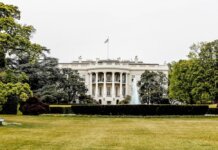With government-sponsored enterprise (GSE) reform highly likely under the new administration, the Mortgage Bankers Association (MBA) is wasting no time and yesterday introduced its own proposal for what should happen to Fannie Mae and Freddie Mac.
Similar to previous proposals that have been floated about during the past several years by various groups (including the association), the MBA’s plan calls for the GSEs to be “congressionally re-chartered” – in other words, re-privatized – and, importantly, calls for an “explicit guarantee” on the mortgage-backed securities they issue.
The MBA’s plan, as outlined in a soon-to-be-released paper, calls for the establishment of a “new, durable foundation for the secondary mortgage market,” the MBA says in a release.
Specifically, the paper outlines a preferred end-state, the principles that should be incorporated in any future system, and the key components and guardrails of the end-state, as well as emphasizes the need to ensure a smooth transition to a reformed secondary mortgage market.
The paper, which will likely be released in April, is derived from the work of the MBA’s Task Force for a Future Secondary Mortgage Market, which considered the benefits and drawbacks of many potential models in developing its recommendation.
Consistent with the MBA’s previous recommendation, the paper calls for an “end-state that would encourage multiple guarantors” that “would be organized as privately owned utilities with a regulated rate of return.”
These guarantors “could purchase from a newly created insurance fund an explicit federal guarantee on a defined class of eligible securities,” the MBA says in a release. “The guarantee would only be for the securities and not the entities issuing them.
“The entities would have a public purpose of providing sustainable credit availability to the conventional single-family and multifamily mortgage market and providing equitable access to lenders of all sizes and business models,” the MBA says. “To address underserved markets nationwide, the entities would be responsible for executing an affordable housing strategy to ensure broad access to credit.”
The full white paper will also include more detailed end-state reform recommendations, including a comprehensive transition plan and affordable housing strategy.
“Today’s paper is intended to provide thoughtful recommendations on how to reform the GSEs, while ensuring a healthy, robust secondary mortgage market emerges for both single-family and multifamily mortgages,” says Rodrigo Lopez, executive chairman of NorthMarq Capital and chairman of the MBA. “The U.S. mortgage market requires global capital in order to maintain adequate liquidity through all economic cycles. International and institutional investors will only fill that role if there is an explicit government guarantee on the securities – something that can only be obtained by congressional action.”
“As a midsize lender, it is critical to me that this paper addresses several key issues, namely that it ensures equal market access for lenders of all sizes and business models and that it maintains a deep, liquid market for long-term financing options,” adds Hank Cunningham, president of First Mortgage Co. and a Task Force member.











All I see here is more propagandist type commentary from the likes of david stevens and the MBA trying to justify shifting the GSEs role to a more bank centric model. Never mind the fact that private label residential mortgage backed securities and their CDSs and CDOs sank the secondary mortgage market in the first place. Private label residential mortage backed securities vastly surpassed the GSEs mbs issuance during the housing bubble years. Directly comparing the loan delinquency rates from PLRMBS and GSE MBS from the same time period shows that PLRMBS had 5 to 6 times the failure rate.… Read more »